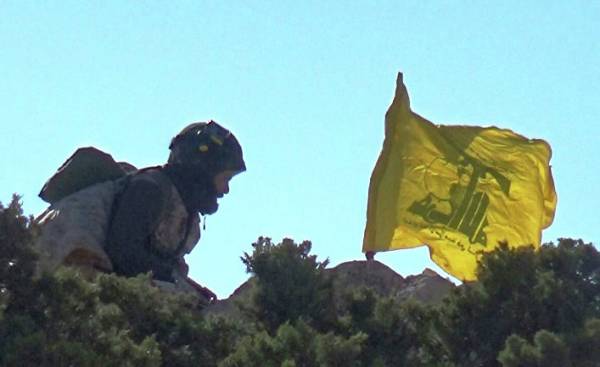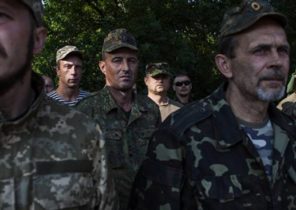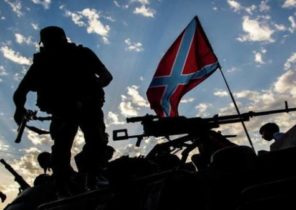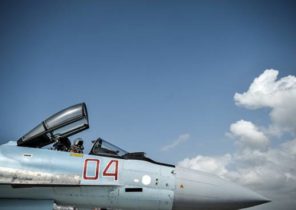
A resident of kibbutz Hanita in the North of Israel considers any strange noise in the basement is proof that “they” are digging a tunnel.
A young Sergeant of infantry notices while on duty on the slopes of mount Hermon that his every move is watched through the binoculars and says “it could be a sniper scope”.
One of the senior officers on the Western border with Lebanon, calls the sector “extremely explosive”.
Two key Israeli Minister threatens Beirut harsh retaliatory measures in the event of a rocket attack on their territory. And even the President of the Jewish state Reuven Rivlin openly admits that he feared the attacks of Hizbollah.
Imagination, fatalism, nervousness, anxiety… Every year in spring, Israel talks about a possible war with the Lebanese Shiite movement. However, this time the anxiety is serious, as shown by the skirmish in the middle of March after an Israeli air strike intended for Hizbollah convoy with weapons in the vicinity of Palmyra. Since the beginning of the Syrian conflict in such operations will be typed with a dozen, but the air defenses of Damascus did not respond to the incident. This time they used a missile surface-to-air s-200, forcing the Jewish state for the first time to use its anti-missile system Arrow. Only the intervention of Russia, a new key player in the region contributed to prevent the escalation of the incident. For some time.
This answer was received with dismay in Jerusalem, where before the conflict the Assad regime with Sunni forces did not cause any pain. After the destruction of the armed Palestinian groups in the West Bank and to isolate Hamas in Gaza, Israel thought that got rid of any serious threats to its borders. Only he forgot that the collapse of the Middle East plays into the hands of “Hezbollah”.
With the entry into the war on the side of Damascus in 2013, the Lebanese movement suffered heavy losses (from 1 500 to 2 000 dead, according to different sources), causing a misunderstanding within their own community and the hostility of the Sunni world. However, the organization is Hassan Nasrallah was able to earn valuable military experience. If before its troops specialized only guerilla warfare, today they form the backbone of Assad’s camp and can carry out large-scale offensive, as demonstrated by their crucial role in the capture of Aleppo. In addition, the deployment motion on Syrian territory gives it a new strategic depth, as well as the opportunity to join forces with Iran, their commander, the mastermind and the sponsor. All this is causing concern among Israelis, who see themselves in a vise between the Shiite axis in the South of Lebanon and the Syrian border. The proximity of the Iranian Navy, which recently achieved from Bashar al-Assad’s permission to drop anchor in the Mediterranean ports of Tartus and Latakia, he also does not inspire optimism. “Israel has two red lines about Hezbollah in Syria: no transmission missiles of the latest generation in Lebanon or attempts to gain a foothold in the Golan heights, explains Edan Landau of the International Institute of counter-terrorism. — Nevertheless, Russia apparently less willing to allow the IDF to act in its sole discretion, to enforce them”.
To understand how an organization that represents only a modest part of the Shiite community of Lebanon, was among the main enemies of a strong Israeli army, need to go back to 1982. After taken, without much hesitation, the decision on the invasion of Lebanon to expel the PLO, Yasser Arafat, Israel stuck in local religious swamp.
Terrorist attacks involving suicide bombers, mined roads, attacks, mortar attacks, ambushes on convoys outside the fortified camps… the War without clear objectives and, therefore, without the possibility of defeat for the Jewish state. She was “a precursor of modern conflicts that subsequently faced the West in Afghanistan and Iraq,” says Matti Friedman, author of the well accepted book, “Pumpkin flowers”, is devoted to what he saw as a rookie in one of the casemates of the “security zone” to the unilateral withdrawal of the Jewish state in 2000. “This period — black box modern Israeli society is locked away in the fortress from the hostile environment, which is unable to reason with neither force nor negotiations, he said. — “Hezbollah” — the catalyst of our fears”.
This feeling only intensified after the 2006 war, when Israel realized that military superiority does not allow them time forever put an end to the Shiite movement, and even to stop someone to bring down a hail of missiles on their territory. The more that Hezbollah has restocked and now has 140 thousands of rockets (from Iran), including R-17 and anti-ship “Yakhont”. “Israel needs to count to a million before you start a war in Lebanon,” said Nasrallah in a recent public statement, assuring that it can strike even the nuclear reactor in Dimona, the center of tel Aviv and huge tanks of ammonia in Haifa.
Famous for his eloquence the leader of the Shiite movement has managed to sow doubt among the enemy. “He has studied our democracy, and knows that its vulnerable point — the civilian population. Our guide still lives in fear that in case of conflict, the back kick stand,” says Kobi Marom, who commanded the IDF-controlled area in Lebanon in 1990-ies and has repeatedly become the target of terrorist attacks of people Nasrallah. A senior representative of the Ministry of defence recalled that the second war in Lebanon between the parties established calm (albeit stressful). And it is satisfied with this status quo. “However, enough things a trifle, that they and we were involved in the conflict. Yet Hezbollah is busy in Syria, but sooner or later we will have the third round of battles,” he warns.
In that day Israel trumpeted that it will apply across the whole of Lebanon, “the doctrine of Dahei”: it is named in honor belonging to “Hezbollah” area in the South of Beirut that was razed to the Ground the IDF in 2006. Deliberately disproportionate use of force in the framework of asymmetric conflict caused outrage when he heard for the first time two years later, those who were then little-known General. Now Gadi Gadi eizenkot heads the staff of the Israeli army. And fear jumps on a different camp. Began the “war of nerves”.







